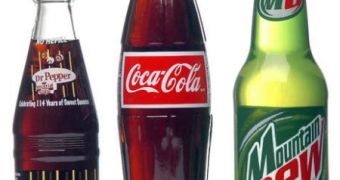Nutritionists and health experts have been lobbying for a so-called soda tax for years, with arguments piling up on each side. One that tips the scales in favor of the tax is a recent study that shows that people would be able to lose an average of five pounds a year if soda was more expensive by 18%, because they would ingest comparatively fewer calories over the same period, as USA Today informs.
The idea with the soda tax is, as we also noted at the beginning of last year, that an increase in price would make consumers less likely to buy it on a daily basis. So, while they would still enjoy a glass of soda or other artificially sweetened beverage, they would not do so as frequently as now. This, in turn, would translate into a decrease in obesity rates and conditions associated with it. Understandably, makers of such products are against the idea and have been struggling to prove it wouldn’t work ever since it was first made public.
“If the price of regular soda and other sweetened beverages increased by 18%, people would consume an average of 56 fewer calories a day and lose about 5 pounds a year, according to projections in a study out Monday in the Archives of Internal Medicine. To come to this conclusion, nutrition researchers at the University of North Carolina studied the eating habits of more than 5,000 young adults over a period of 20 years and found associations between higher food costs and lower calorie intake. A $1 increase in soda was associated with a decreased intake of a 124 calories a day, and therefore a decrease in body weight,” USA Today writes.
“Based on that finding, the researchers suggest that an 18% price increase on soda would result in the decline in calories and a 5-pound annual weight loss, which would mean a decrease in weight-related diseases like diabetes, heart disease and cancer. ‘It’s a pretty significant weight loss,’ says senior author Barry Popkin, a nutrition professor at the University of North Carolina. ‘What shocked me is that it’s a much higher weight reduction than we expected. If we could reduce everyone in America’s weight by five pounds, they’d be happier and healthier’,” the publication further says.
While the authors of the study insist the soda tax would convince people to switch from soda to plain water, thus doing something that would benefit both their health and finances, representatives of large companies disagree. Kevin Keane from the American Beverage Association, for instance, says the study doesn’t hold water in real life for the simple reason that it does not reflect normal, real-life eating and spending patterns.

 14 DAY TRIAL //
14 DAY TRIAL //